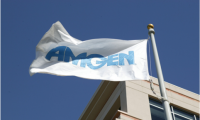-
Elon Musk’s brain chip firm says US approval won for human study
- Source: drugdu
- 113
- May 29, 2023
-
Neuralink competitor Paradromics gets one step closer to FDA approval for its brain implant
- Source: drugdu
- 123
- May 21, 2023
-
SCOTUS hands win to Sanofi, Regeneron in long-running PCSK9 feud with Amgen
- Source: drugdu
- 120
- May 21, 2023
-
Rapid spread of antibiotic-resistant E. coli across Europe raises concerns
- Source: drugdu
- 136
- May 17, 2023
-
Amgen and TScan Therapeutics partner to identify new Crohn’s disease targets
- Source: drugdu
- 150
- May 16, 2023
-
Ariceum and UCB link up to take on immune-related diseases
- Source: drugdu
- 123
- May 15, 2023
-
European Commission green lights Servier’s Tibsovo
- Source: drugdu
- 119
- May 13, 2023
-
EU countries lay out framework for combating drug shortages
- Source: drugdu
- 142
- May 9, 2023
-
Researchers evaluate the dual-therapeutic effect of gene therapy in mouse model of osteosarcoma
- Source: drugdu
- 153
- May 9, 2023
your submission has already been received.
OK
Subscribe
Please enter a valid Email address!
Submit
The most relevant industry news & insight will be sent to you every two weeks.













